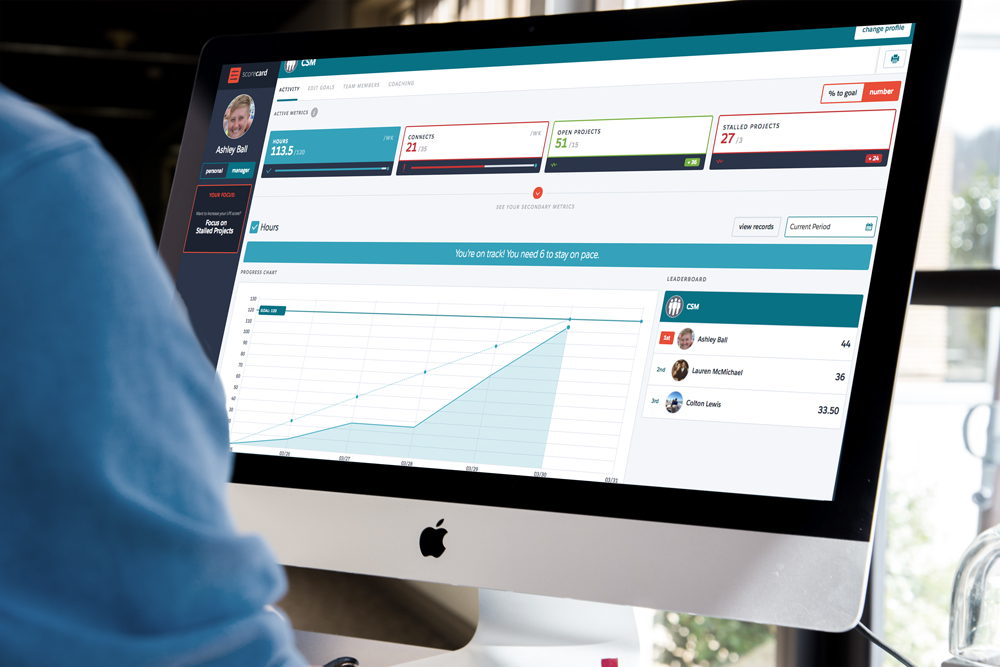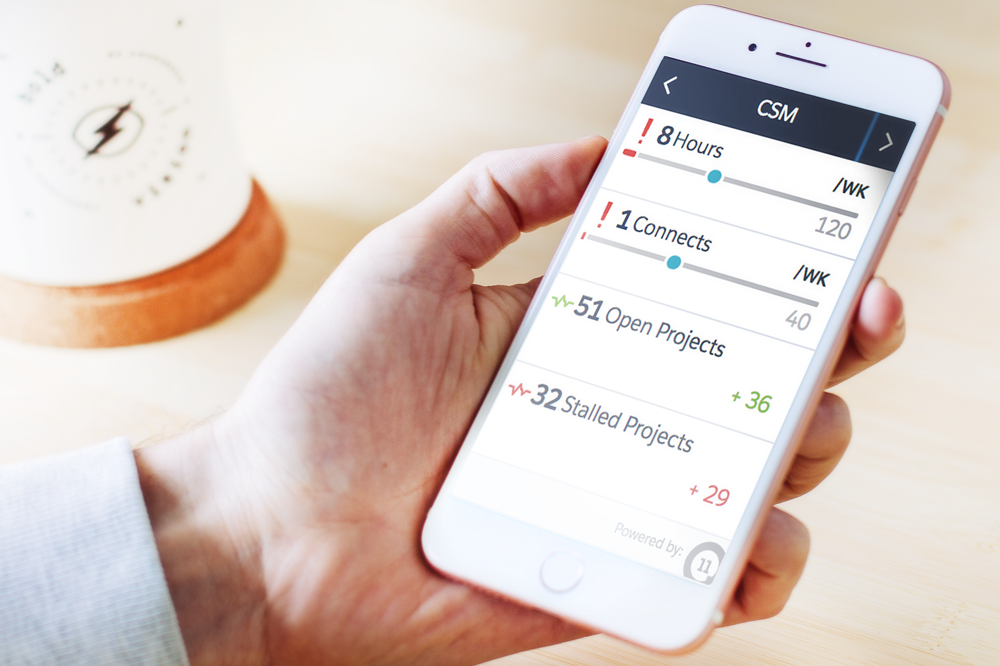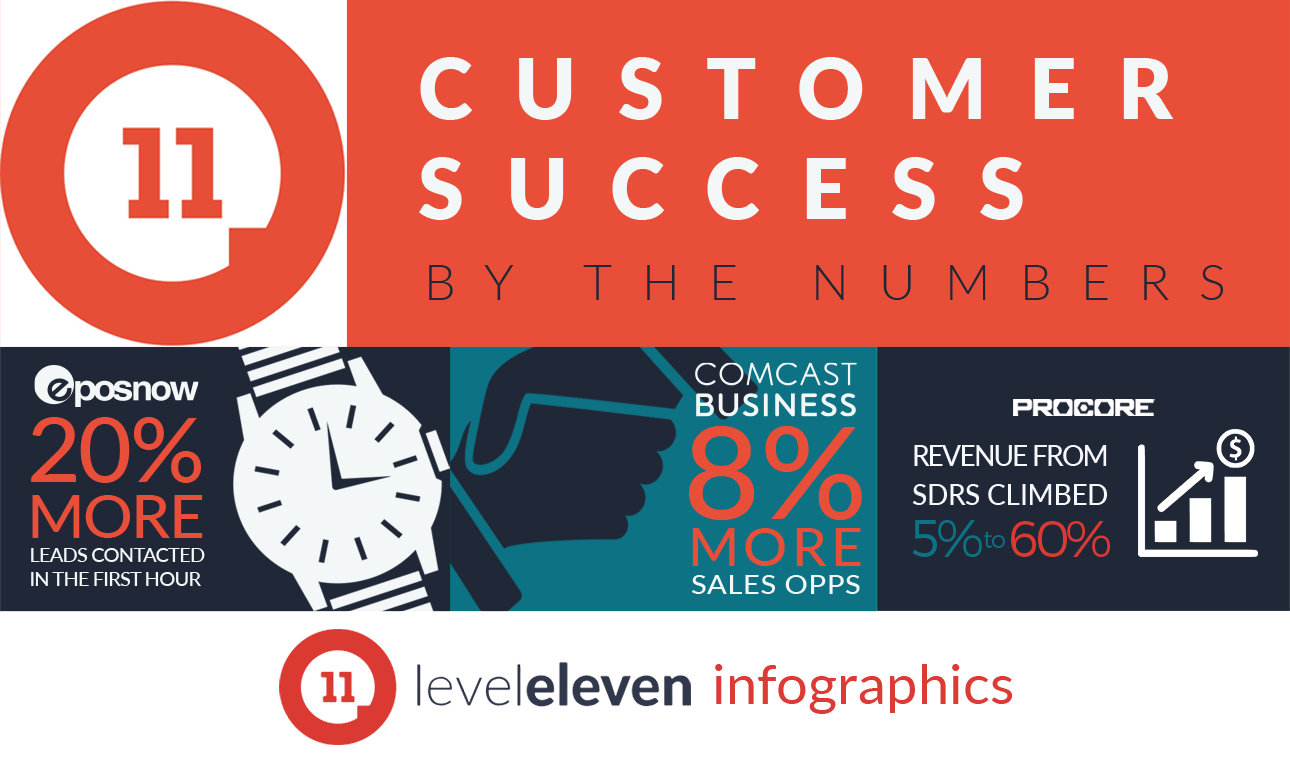Q & A with LevelEleven Director of Customer Success, Ashley Ball
LevelEleven Director of Customer Success, Ashley Ball, has been in customer service for twelve years, four of which have been with LevelEleven. One of her main priorities since joining the team has been to configure LevelEleven to help meet the daily demands of customer success (CS) professionals and drive bottom-line results, the same way it does for so many sales teams.
Below is an in-depth interview with Ashley highlighting the custom solutions LevelEleven has built for CS teams and the use cases they provide:
Q: How Did You Configure Your Team’s LevelEleven Scorecards?
A: It took us a few iterations to get it to look and feel right. We [the CS team] wanted it to be usable, provide day-in day-out value and make sure we were consistently performing the right behaviors.
But, with the first few iterations, we realized that it wasn’t achieving the desired result. So, we changed the metrics, revised the goals, moved primary metrics to secondary metrics and vice versa to ensure we were performing the behaviors that lead to bottom-line results.
We sat down as a group and asked ourselves, “How is this helping? Which of these scorecard metrics are valuable?” That helped us evolve the product and optimize our team’s LevelEleven Scorecards.
Q: How Does LevelEleven Help Define Metrics for Customer Success Teams?
A: As we built out a model for other companies the LevelEleven CS team made some significant breakthroughs, discovering metrics that were far more useful for CS teams:
- Does it provide support?
- Is it providing a value study?
- Is the time spent with a customer?
Those types of questions helped us build out a replicable model for success for all of our customers with CS teams.
As opposed to having a call just to “touch base” now we are making calls with a well-informed purpose. That’s the most significant evolution LevelEleven has provided CS teams, in my opinion.
Q: Which Metrics Does the LevelEleven Customer Success Team Use?
A: As we made more and more breakthroughs testing and optimizing LevelEleven for our customers with CS teams, our internal CS team has continued to fine-tune our core metrics, which include:
- Hours spent with customers
- Connects (live conversations with customers)
- Open projects (customer projects being worked on)
- Stalled projects (customer projects that are stalled)
- Projects closed (customer projects completed)
- Unique account calls (calls into the base of accounts we own)
All of our core behaviors revolve around how often we speak to customers and how much time we spend with them.
Q: Why are Waterline Metrics Important for Customer Success Teams to Monitor?
A: First and foremost, waterline metrics allow us to have a pulse on the customers. They’re essential for CS teams because they tell us when we haven’t spoken with or scheduled a call with a customer who is in the middle of a project in five days or more. After that time they become a “stalled customer.”
Now, as a manager of a CS team, I can look at that and say. “We have 20 projects we haven’t spoken to within the last five days, what’s going on with these accounts?” From there, I can pull a report on those customers and see who spoke with them last, then establish a plan to engage them more regularly.
Q: Why are Cumulative Metrics Important for Customer Success Teams to Monitor?
A: While waterline metrics give us a variable pulse on customers, cumulative metrics provide us with specific goals. So, they are beneficial, just in a different way.
Q: What’s an Example of a Nontraditional Customer Success Use Case for LevelEleven?
A: Outbound call centers, tend to see substantial benefits from LevelEleven.
Whether they’re calling to schedule demos or to collect user data, they have a visual leaderboard with their daily progress. With that in place, employees and managers can build a cohesive workflow. Also, it allows call center managers to identify their major contributors, and reward them in kind.
Q: How Do LevelEleven Contests Help Motivate Customer Success Teams?
A: What’s funny about us is that even though we aren’t salespeople by nature, we do tend to get competitive with one another when there’s a contest.
In particular, CS teams derive motivation from LevelEleven competitions the same way sales teams do. If you put a leaderboard on a TV screen and tell people to do a specific thing, they will do that to not be at the bottom. The more relevant the contest, the more invested they get.
What’s more, you can create a contest revolved around a variety of goals to keep your team engaged and excited. From contests focused on Salesforce AppExchange reviews to contests focused on account add-ons, the possibilities are practically endless.
Q: Why Do Companies First Decide to use LevelEleven for Customer Success teams?
A: LevelEleven has traditionally been brought on to optimize sales. But, once a sales manager sees the success of the platform, word tends to spread quickly to other departments. As a result, entire organizations integrate LevelEleven across their business. It’s usually word-of-mouth from other leaders or managers at a company that triggers a chain reaction, or someone sees Channel11 up on the office TV’s and wants to learn more.
Every team in any organization has to drive behavior in some way. The question is, are they the best behaviors for your business? If you’re uncertain of the answer or know the answer, just not the solution, you likely have a place in your organization for LevelEleven.
Q: How Does LevelEleven Time Tracking Feature Benefit Customer Success Teams?
A: Number-one, time tracking is not meant to be used to micromanage, it’s there for our customers. It helps us know which of them are getting enough talk time and which accounts need a bit more nurturing.
Q: How Do LevelEleven Scorecards Help Customer Success teams?
A: With so many customers – and some reps have thousands – it’s easy to have one fall through the cracks. But, if you have a LevelEleven Scorecard that tells you when an opportunity gets overlooked or missed entirely, it’s always right in front of you. CS Managers can immediately see that and help their team members address it.
LevelEleven Scorecards help CS teams efficiently communicate, maintain a sense of urgency and maintain a pulse on their customers. With that internal process in place, customers receive the appropriate amount of attention to see the value in a product or service, which leads to additional renewals and add-ons.







